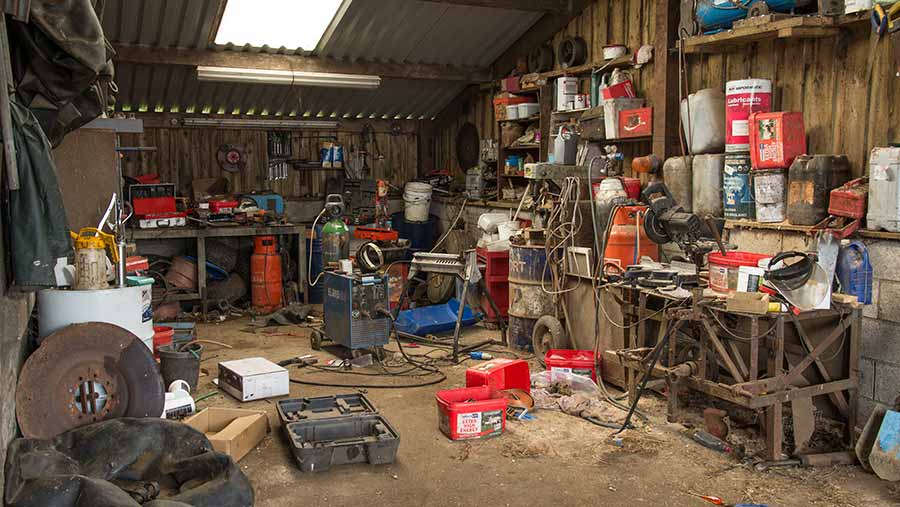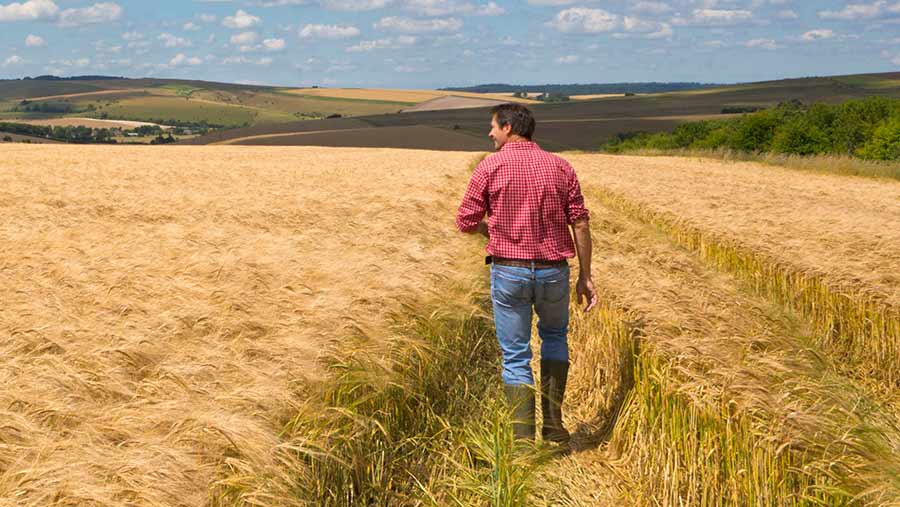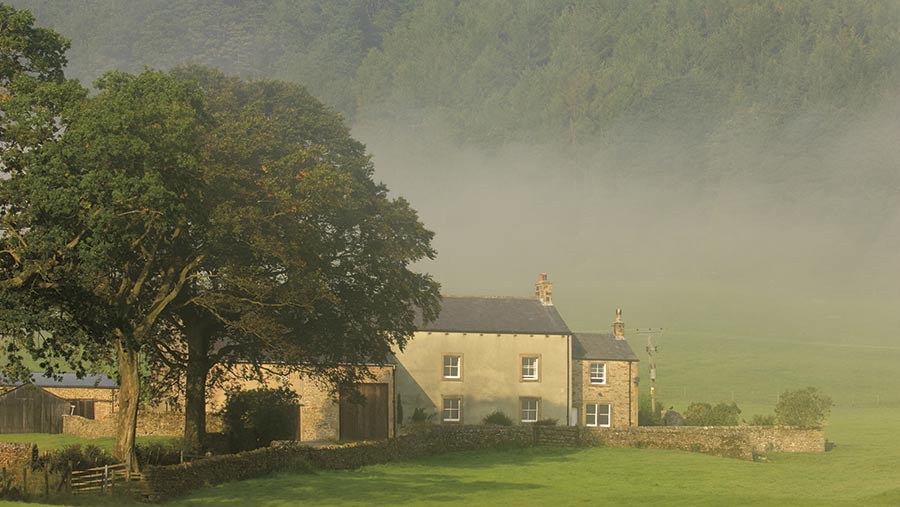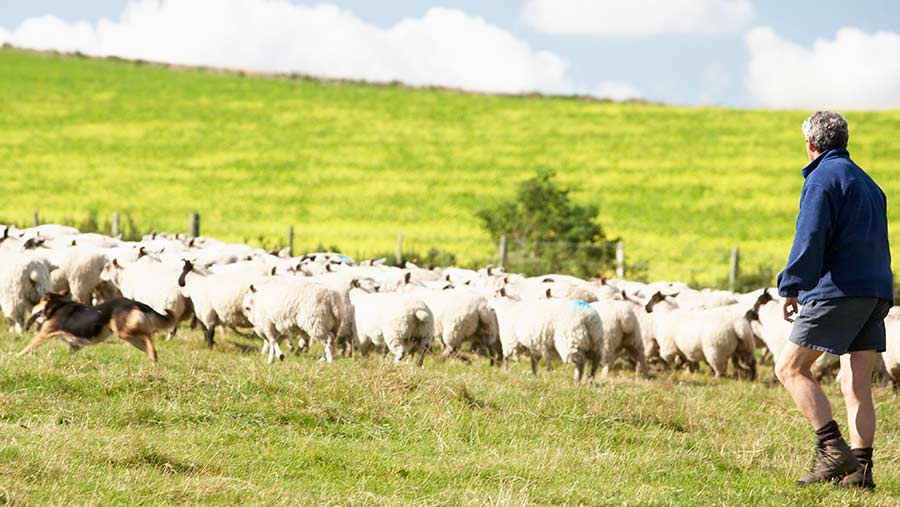6 property mistakes farmers make and how to avoid them
The legislative framework facing farmers is large and complicated, making it easy to trip up – especially since as it is often changing.

Fran Barrigan
Associate
Strutt & Parker
Getting things wrong – or just doing nothing about them – can result in a variety of problems, including strained relations with farmworkers, friends and the public.
Landowners can end up with access claims, paying more tax than is needed or even a costly penalty for not adhering to regulations.
Here are the most common property management mistakes farmers make and tips on how to avoid them.
1. Losing cottages to farmworkers

© Michael Krabs/imageBROKER/Rex/Shutterstock
Employers offering farmworkers a cottage as part of their job may risk giving the employee and their family security of tenure unless they follow the correct procedures.
Problems generally tend to arise when the end of employment is acrimonious or where the house is needed for another occupier.
It can also present a problem when borrowing against the house, as security of tenure has an impact on the value. Farmers who have overlooked this should seek professional help.
Most farmers are aware that longstanding workers who have always been provided with accommodation will, if they meet certain qualifying criteria, have the right to stay in the cottage even into retirement.
In some cases, the spouse of the employee will have a similar right even after the employee has passed away.
See also: How to protect your farm business from risk
These tenancies, governed by the Rent (Agriculture) Act 1976, restrict the amount of rent that can be charged once employment ends and can be substantially lower than an open-market rent.
However, many farmers are unaware that the Housing Act legislation applying to assured and assured shorthold lettings also gives agricultural workers security of tenure, albeit not at a reduced rent.
To gain this protection, the worker must be a serving farmworker housed by the farmer or by someone else by arrangement with the farmer.
Criteria relating to the worker’s length of employment in agriculture (with one or more employers) also apply, which means that farmers must give consideration to the worker’s employment history not just to the present situation.
How to avoid the mistake
Giving security of tenure can only be avoided by following the statutory process at the start.
It is a simple process involving serving a notice (generally referred to as a Form 9 Notice) in which the landlord confirms the arrangement is intended to exclude security of tenure and the employee signs to confirm they accept that is the case.
2. Accidental business tenancies

© John Eveson/FLPA/Rex/Shutterstock
Renting out a redundant shed to a friend or local business might seem a good idea when commodity prices are under pressure, but there is a danger you can inadvertently grant a tenancy.
Many of these agreements are informal and it’s an understandably attractive way to diversify farm income.
However, not all farmers appreciate that, in some cases, this can mean the occupier of the building has a perpetual right to a tenancy.
The classic problem arises where someone asks to use a building – perhaps for machinery repairs or storage – and then padlocks it, locking the owner out.
If the owner agrees to that and accepts rent, the arrangement has many of the hallmarks of a tenancy, as the occupier has exclusive possession.
Unless the right steps are taken, an arrangement like this could result in the occupier having security of tenure under the Landlord & Tenant Act 1954.
The tenant would then have a right to a tenancy of the building indefinitely, unless the owner can prove one of a limited number of grounds for possession.
Aside from the obvious problem of removing the tenant if you want the building back, this is a problem in relation to value on sale or for loan security, as the tenancy may reduce the value of the property.
Crucially, you may also have lost agricultural property relief from inheritance tax on that building if it is no longer in agricultural use, which is fine if the rent payable compensates for that loss, but might leave an unexpected liability otherwise.
How to avoid the mistake
A notice and declaration process must be completed, whereby both parties agree that the person renting the building will not gain security of tenure.
It is crucial this happens before the tenancy starts. The easiest way is to sign what is known as a “simple declaration”, though that requires a 14-day cooling-off period before the start of the tenancy.
3. Giving away a right of access

© Juice/Rex/Shutterstock
If the public regularly use a route across private land, the law allows a public right of way to be claimed based on 20 years of uninterrupted use “as of right”.
This means that if trespass is left unchallenged for a long period then there is a real danger a permanent right of way could be claimed.
To prevent this happening, landowners should display signs making it clear that it is private land, maintain boundaries and fences and close and lock gates.
While they are not required to do everything practically possible to exclude access, landowner’s actions must be noticeable so it is obvious to the public that there is no right of way.
If you have land that might have development potential then protecting it against rights of way claims is vital.
It is also worth noting that the classic method employed by many farmers of choosing Christmas Day to lock the gates of a track or field in a bid to stop a right of access from being claimed is now unlikely to be good enough.
A recent case found that locking gates on a day when a route is unlikely to be used is not an effective method of telling the public there are restrictions.
How to avoid mistake
Farmers should also submit a “Section 31 Deposit” under the Highways Act 1980 to their local council, which contains a map of their property showing any rights of way crossing it and a statement to the effect that the owner intends to allow no more public rights of way across that land.
This means any new routes created after the lodging of the statement will not gain right-of-way status.
There is a charge, which varies council by council, but as the deposit is valid for 20 years, it’s not a cost that is incurred at frequent intervals.
Farmers need to take action that they know the public will see if they want to protect themselves, and the Section 31 method is one easy way to do so.
4. Missing out on farmhouse tax relief

© John-Eveson/FLPA/imageBROKER/Rex/Shutterstock
Many farmers are very aware of the rules surrounding inheritance tax, but some do fall into traps which mean they miss out on agricultural property relief (APR).
Relief on the farmhouse can be lost if the land is let – for example, if someone starts to wind down their own farming activities and lets land out to a neighbour.
There is generally no problem in getting APR on the land if ownership criteria are met and the land is being farmed, but there might be no relief at all on the farmhouse if HMRC no longer views the house as being occupied for agricultural purposes.
That’s not to say that letting land and remaining in the farmhouse is a bad plan; it may well be the best choice to suit the circumstances, but it needs to be a considered choice with all the other options examined.
Where farmers can be caught out is if a temporary strategy is put in place – such as letting for a period until the children come home.
The test for APR applies at the date of death, so if that temporary arrangement were in place at the time APR is tested, that’s what would be assessed – not the previous farming history or the future plans.
How to avoid the mistake
There is positive news for farming families in that the new Main Residence Nil Rate Band, due to come into force on 6 April 2017, should offer an alternative to APR when considering how to pass the farmhouse to the next generation.
Under the proposals, houses occupied as the deceased’s main residence willed to a direct descendant or spouse should qualify for relief up to the value of £1m in 2020.
The legislation is still in draft form, so much depends on the detail. For example, at present the draft includes a ceiling on the total value of assets you can hold and still qualify for the relief.
For estates of more than £2.35m, the main residence relief is withdrawn, so if you personally own a £5m farm, you can’t pass on the farmhouse tax-free relying on the Main Residence Nil Rate Band to do it.
It is going to be less important to worry about APR on the farmhouse if you can make the Main Residence Nil Rate Band work.
To do so, we may see a greater trend for farmers gifting land earlier to bring the value of their estate down.
It does need careful thinking through though, because there are other tax implications of gifting land and knock-on effects on other aspects of the farming business, such as security for borrowings.
We do see problems on a fairly regular basis where a decision made for tax reasons has had unfortunate implications for the ongoing business further down the line. Those problems could have been avoided if the practicalities had been considered.
5. Herbage agreements becoming tenancies

© Monkey Business/Rex/Shutterstock
Problems arise for herbage agreements or grazing licences when agreements start to drift and stray from the initial agreement.
For example, where the owner of the land allows the grazier to reseed or apply fertiliser to the field and walks away from any active husbandry. If this is allowed to continue, it might be that the status of the agreement is open to challenge and a tenancy found.
One of the reasons a landowner enters into a herbage agreement is to ensure he can be shown to be the person undertaking the agricultural activity on the land and therefore remains eligible to claim under the Basic Payment Scheme.
If the terms of the agreement are not followed, it might be that the active farmer status could be challenged and, if proven, the payments withdrawn and additional penalties levied.
If the owner does not have control of the land, then there will also be implications when it comes to inheritance tax reliefs available.
The court case McCall v HMRC showed the importance of being able to show a farmer who offers land out on a licence is still carrying out sufficient farming activities to qualify for business property relief (BPR).
In that instance, a claim for BPR was rejected because it was ruled the land was an investment rather than a farming business.
How to avoid the mistake
This is really about showing attention to detail. Herbage agreements or grazing licences should be carefully drafted and followed to the letter to avoid risk.
Often people draw up an agreement the first year, but they don’t then review the paperwork.
A landowner who doesn’t have any paperwork or any receipts to prove that they have been farming the land will have nothing to justify their trading activity in the event of a claim.
Agreements must also be operated properly – just having the paperwork is not enough. You need to be able to show what is actually happening on the ground.
6. Failing to meet residential property obligations

© Frederic Sierakowski/Rex/Shutterstock
There have been a number of developments in the past year or so which affect farmers letting out residential property, whether to agricultural workers or otherwise.
While not all of these are new requirements, it is important that none are overlooked as it could result in a hefty fine or make it more difficult to regain possession of the property in the event that you want to bring the tenancy to an end.
How to avoid the mistake
Since 1 February 2016, anyone who rents out property (other than to an employee) must obtain proof that the tenant has the legal right to reside in the UK and is not in the country illegally.
Landlords must take copies of suitable documentation, which includes a passport or residence permit. Penalties for non-compliance include fines of up to £3,000 per instance.
Since 1 October 2015, it has also been a requirement for landlords to install working smoke and carbon monoxide alarms in their properties. Smoke alarms must be on every floor of the property, and tested at the start of every tenancy.
Carbon monoxide alarms are required in high-risk rooms, which are those with a solid fuel appliance. Failure to install smoke and carbon monoxide alarms could lead to a fine of up to £5,000.
There is no current requirement to provide a carbon monoxide alarm in rooms where a gas or oil boiler is in situation, but doing so would certainly be best practice.
Before an assured shorthold tenancy is granted, it is also now a requirement that landlords must provide tenants with an energy performance certificate for the house, the current gas safety certificate (if applicable) and a copy of the government’s “How to Rent” guide.
Failure to do so will mean that the landlord cannot serve notice to regain possession of the property until the situation is rectified.
